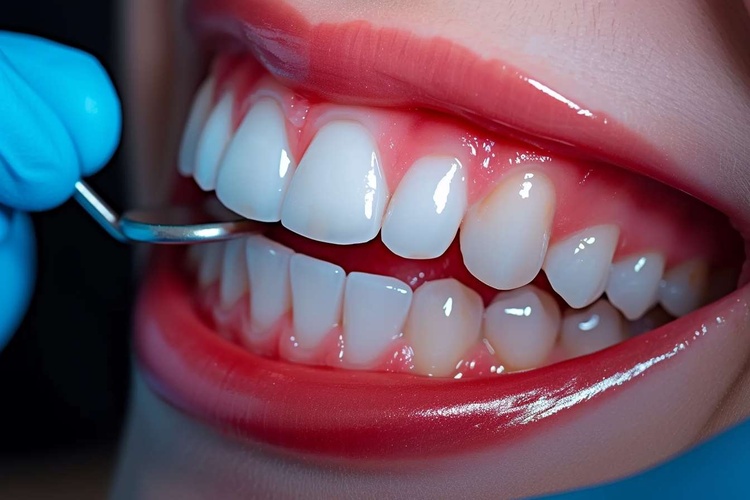Considering Dental Implants? What You Should Know
Missing teeth can significantly impact your quality of life, affecting everything from your ability to eat comfortably to your confidence when smiling. Dental implants have emerged as a popular solution for tooth replacement, offering a permanent alternative to dentures or bridges. Understanding the procedure, benefits, and costs involved can help you make an informed decision about whether this treatment is right for your specific needs.

Considering Dental Implants? What You Should Know
Dental implants represent a significant advancement in modern dentistry, providing individuals with a long-term solution for missing teeth. Unlike traditional dentures or bridges, implants integrate directly with your jawbone, creating a stable foundation for replacement teeth. This comprehensive approach to tooth restoration has helped millions of people worldwide regain their ability to eat, speak, and smile with confidence.
What Are Dental Implants and How Do They Work?
Dental implants are titanium posts surgically placed into the jawbone to replace the root of a missing tooth. The titanium material is biocompatible, meaning it naturally fuses with bone tissue through a process called osseointegration. Once the implant integrates with the bone, typically over several months, it provides a stable anchor for a crown, bridge, or denture. This three-part system includes the implant itself, an abutment that connects to the implant, and the visible crown that resembles your natural tooth.
Who Might Consider Implants?
Candidates for dental implants include individuals who have lost one or more teeth due to injury, decay, or periodontal disease. Good candidates typically have sufficient bone density in their jaw to support the implant and maintain good oral hygiene. Age is generally not a limiting factor, as both younger adults and seniors can successfully receive implants. However, certain medical conditions such as uncontrolled diabetes, heavy smoking, or radiation therapy to the head and neck area may affect healing and implant success rates.
The Implant Procedure Step by Step
The implant process typically occurs in multiple stages over several months. Initially, your dentist will conduct a comprehensive examination, including X-rays and possibly CT scans, to assess bone structure and plan the procedure. During the surgical phase, the implant is placed into the jawbone under local anesthesia. Following surgery, a healing period of three to six months allows for osseointegration. Once healed, the abutment is attached, and impressions are taken for the custom crown. Finally, the permanent crown is secured to the abutment, completing the restoration.
Benefits of Dental Implants
Dental implants offer numerous advantages over traditional tooth replacement options. They provide superior stability and function, allowing you to eat virtually any food without concern. Unlike dentures, implants do not slip or require adhesives, and they help preserve facial structure by preventing bone loss in the jaw. Additionally, implants do not require alteration of adjacent healthy teeth, as bridges do. With proper care, dental implants can last decades, making them a cost-effective long-term investment in oral health.
Understanding the Cost of Dental Implants
The cost of dental implants varies significantly based on several factors, including the number of implants needed, the complexity of the case, and geographic location. In Pakistan, single implant costs typically range from PKR 80,000 to PKR 150,000, while full mouth reconstructions can cost between PKR 800,000 to PKR 1,500,000. Additional procedures such as bone grafting or sinus lifts may increase overall costs.
| Provider Type | Service Offered | Cost Estimation (PKR) |
|---|---|---|
| Private Dental Clinics | Single Implant | 80,000 - 120,000 |
| Specialized Implant Centers | Single Implant with Crown | 100,000 - 150,000 |
| Dental Hospitals | Full Mouth Restoration | 800,000 - 1,200,000 |
| University Dental Programs | Single Implant (Supervised) | 60,000 - 90,000 |
Prices, rates, or cost estimates mentioned in this article are based on the latest available information but may change over time. Independent research is advised before making financial decisions.
Many factors influence the final cost, including the type of implant system used, the need for additional procedures, and the experience level of the dental professional. Some dental insurance plans may provide partial coverage for implants, particularly when they are deemed medically necessary. Payment plans and financing options are often available through dental offices to make treatment more accessible.
When considering dental implants, it is essential to choose a qualified dental professional with experience in implant dentistry. Look for dentists who have completed specialized training in oral surgery or prosthodontics. Schedule consultations with multiple providers to compare treatment plans and costs. Remember that while price is an important consideration, the quality of care and long-term success of your implants should be the primary factors in your decision-making process.
This article is for informational purposes only and should not be considered medical advice. Please consult a qualified healthcare professional for personalized guidance and treatment.




